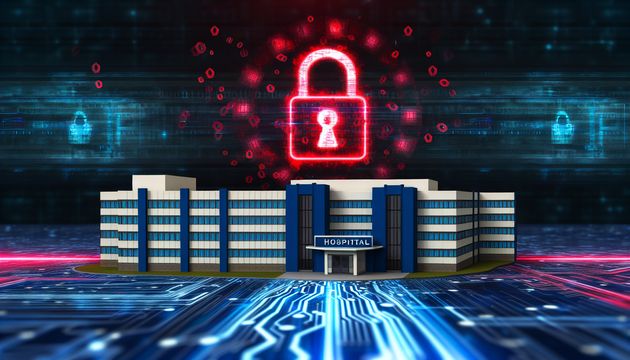
Let's Encrypt Ends Certificate Expiry Emails: A Shift Towards Automation and Privacy
Let’s Encrypt, a nonprofit organization dedicated to providing free and automated digital certificates, has recently decided to discontinue its certificate expiry email notifications. This decision stems from a combination of financial, technical, and privacy considerations. The cost of maintaining the email notification system was becoming a significant financial burden, estimated at tens of thousands of dollars annually (BleepingComputer). Additionally, the complexity of managing this system was detracting from the organization’s core mission of simplifying and securing web communications. Privacy concerns also played a crucial role, as retaining a large database of email addresses posed potential risks (BleepingComputer). By eliminating these notifications, Let’s Encrypt aims to streamline its operations and enhance user privacy.
Reasons for Ending Email Notifications
Cost Implications
One of the primary reasons for ending email notifications by Let’s Encrypt is the significant cost associated with maintaining this service. The organization estimates the cost of running the email notification system to be “tens of thousands of dollars per year” (BleepingComputer). This financial burden is substantial for a nonprofit organization like Let’s Encrypt, which aims to provide free, automated, and open digital certificates. By reallocating these funds, Let’s Encrypt can invest in other critical areas of its infrastructure, thereby enhancing its overall service delivery.
Infrastructure Complexity
The email notification system adds unnecessary complexity to Let’s Encrypt’s infrastructure. Managing this system requires significant time and attention, increasing the likelihood of errors (BleepingComputer). As the organization continues to expand and support new service components, it becomes crucial to manage overall complexity by phasing out system components that are no longer justified. Simplifying the infrastructure allows Let’s Encrypt to focus on its core mission of providing secure and reliable certificate services.
Privacy Concerns
Privacy concerns also played a pivotal role in the decision to end email notifications. Let’s Encrypt had to retain, manage, and protect a large database of email addresses linked to certificate issuance records (BleepingComputer). This data retention posed potential privacy risks, as any breach could expose sensitive user information. By eliminating the need to store and manage these email addresses, Let’s Encrypt enhances user privacy and reduces the risk of data breaches.
Shift Towards Automation
The adoption of automation, particularly through the Automatic Certificate Management Environment (ACME) protocol, has reduced the need for manual interventions in certificate management (BleepingComputer). ACME enables websites and server software to automate the issuance, installation, and renewal of certificates with minimal human intervention. This shift towards automation has been further accelerated by changes in industry standards, such as the CA/Browser Forum’s announcement to reduce certificate lifespans to 47 days by 2029. As a result, the necessity for email notifications has diminished, making them redundant in an increasingly automated environment.
Encouraging Best Practices
By discontinuing email notifications, Let’s Encrypt encourages users to adopt best practices in certificate management. Users are urged to implement tools that support the ACME protocol and to stop relying on email notifications for certificate renewals (BleepingComputer). This shift promotes a more proactive approach to certificate management, where users take full responsibility for monitoring and renewing their certificates. For those who still require renewal alerts, setting up external notification services is recommended, ensuring that users remain informed without depending on Let’s Encrypt’s email system.
Impact on Different User Groups
The cessation of email notifications impacts various user groups differently. Websites using managed hosting services or enterprise-level SSL services with full monitoring and automation are unlikely to be affected, as these services typically include SSL monitoring (KE2B). However, users with self-hosted servers, VPS, or local servers that require manual Certbot or ACME renewal may face additional risks if they relied on email notifications. These users must adopt alternative monitoring mechanisms to ensure timely certificate renewals and avoid potential service disruptions.
Real-World Context
In recent years, data breaches have become alarmingly common, with high-profile incidents affecting millions of users. For instance, the 2024 breach of a major tech company exposed sensitive information of over 50 million users, highlighting the importance of robust data protection measures. By eliminating email notifications, Let’s Encrypt reduces the risk of similar breaches, prioritizing user privacy and security.
Final Thoughts
The decision by Let’s Encrypt to end certificate expiry email notifications marks a significant shift towards more automated and secure web practices. By focusing on automation through the ACME protocol, Let’s Encrypt encourages users to adopt best practices in certificate management, reducing reliance on manual interventions (BleepingComputer). This move not only alleviates financial and operational burdens but also enhances user privacy by minimizing data retention risks. While some users may face challenges adapting to this change, the overall impact is expected to promote a more proactive and secure approach to digital certificate management.
References
- Let’s Encrypt ends certificate expiry emails to cut costs, boost privacy, 2024, BleepingComputer https://www.bleepingcomputer.com/news/security/lets-encrypt-ends-certificate-expiry-emails-to-cut-costs-boost-privacy/
- Let’s Encrypt to stop SSL notification, 2024, KE2B https://ke2b.com/en/lets-encrypt-stop-ssl-notification/



